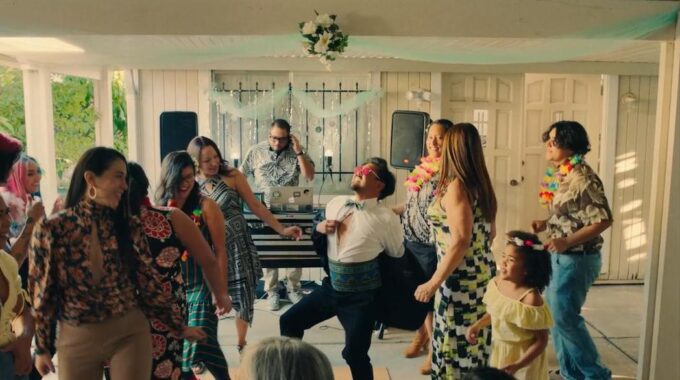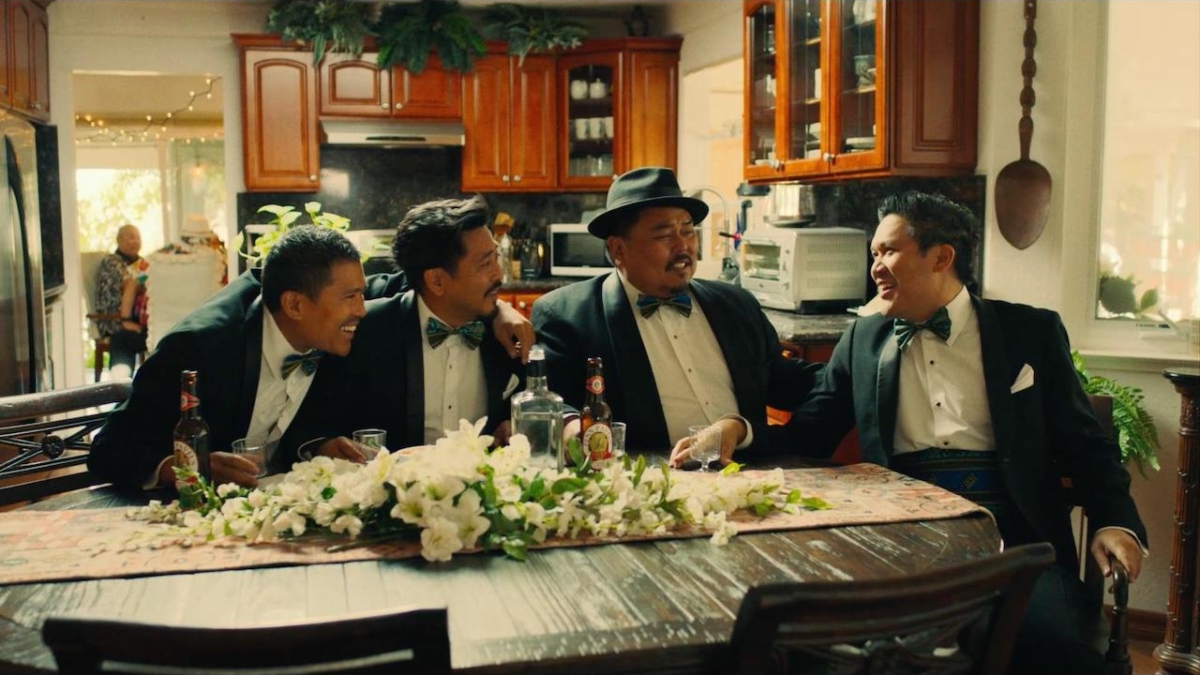Written By: Nathan Liu
This article may contain spoilers.
Everything you need to know about Dante Basco’s directorial debut, “The Fabulous Filipino Brothers,” is right there in its title. It’s about being a brother and it’s about being Filipino. (All right, there’s a bit more to it than that, but both of those themes are present throughout the film).
The story of four brothers getting ready for a wedding, the movie is, in every conceivable sense, a family affair. Not only does the film’s narrative touch upon themes of familial love and communal support, but also pretty much every member of the Basco clan had a hand in making the picture. Dante co-wrote the script with his siblings, Arianna and Darion, and all of them act in the movie as well. Even the film’s structure — the movie consists of four separate vignettes relating to the wedding — was born from family ties. As Dante elucidated over Zoom, “We’ve all been in the industry the same amount of time … and, to a large degree, Hollywood hasn’t really seen everything [my brothers] can do. So I was like, let’s just write these pieces for everyone’s strengths.” This explains why the vignettes differ so much in terms of length and tone, and shows how tight the Basco clan truly is.
What is of equal, if not greater importance, to the film’s focus on family is its exploration of Filipino American culture. There are several scenes where the characters eat and debate Filipino cuisine. Arianna Basco’s voiceover frequently drops in nuggets of Filipino history, like the fact that the country is named after King Phillip II of Spain. There’s even a scene where the oldest brother, Dayo, played by Derek Basco, explains to his Chinese American wife that Filipinos are a different kind of Asian. “We’re Jungle Asian,” he declares, “tribal!”
When I asked Dante why they included all these cultural details, he joked that “Most people don’t know what a Filipino is,” and his brother Dion agreed and added, “We wanted to show ‘crazy blue-collar Asians.’” Considering that the film includes, among other things, gambling, cock-fighting and frequent drug use, I’d say they succeeded in the latter. And they certainly provided a new perspective on the Asian American story.
Even now, a great deal of the Asian-centric content getting made in Hollywood is by and about East Asian people, à la “Crazy Rich Asians,” and “Minari.” So getting the chance to see different Asian cultures, as well as different kinds of Asian American masculinity, is refreshing. Though, as Dante was quick to point out, “In no way did we write this thing as the end-all-be-all anthem or statement on Filipino Americans.” And by no means was it meant to throw shade at those other movies, since, as he explained, “All those guys — Jon Chu, Chris Pang, Henry Golding, Steve Yeun — are our friends.” To use his own words, “I just want audiences to be entertained.” And as a piece of entertainment, the film mostly succeeds.

Because the movie is four short stories, and because those stories are of differing tones and length, it’s somewhat of an uneven viewing experience. How much you do or don’t enjoy it will probably depend on your taste and sense of humor. I, as an example, liked the first vignette, where the eldest brother struggles to pay for the catering, and disliked the second, wherein the third brother reconnects with an old flame in Manila. But, as I said, that’s just personal taste. Other people may feel the opposite.
What is objectively strong, though, is the chemistry between the stars. Easily the best scenes in the movie are the ones where the Basco brothers are on screen together, joking and talking. It feels real because, well, it is. The soundtrack is also very catchy, and there’s some nice cinematography, like an unbroken tracking shot where Dante gets out of a cab and enters the wedding venue. Again, the stories aren’t all created equal, and some of the dialogue can get on-the-nose. But in the end, it’s impossible to hate a movie made by a family, about family, with so much genuine warmth and affection. It’s a movie that, as Dante Basco put it, is “rich in love,” and it’s impossible not to feel that love when you see it.
“The Fabulous Filipino Brothers” makes its New York City premiere at the 44th Asian American International Film Festival. Ticket and screening information can be found here.

